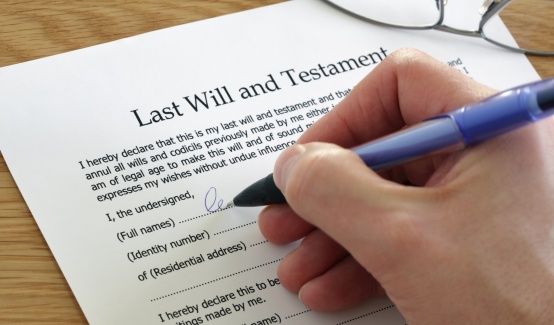
Helping You Through Probate Matters With Confidence and Clarity
Managing a deceased estate can be complex, especially when you’re grieving. Our Probate Lawyers guide you through every step, ensuring a simplified probate process wherever possible. From applying for a grant of probate to distributing assets, we’ll ensure you have clear advice and practical support aligned with the Probate and Administration Act.
Whether you’re an executor or beneficiary, we’ll help ensure the estate is administered correctly and without unnecessary delays.
Supporting You Through the Probate Process, Every Step of the Way
Finalising a loved one’s estate involves legal and financial steps that can feel overwhelming. Our experienced lawyers simplify the process, manage any complications and provide clear communication throughout. We understand the emotional weight that can come with these matters, as well as the stress of organising the legal side as a surviving spouse or family member.
We aim to resolve matters efficiently, protect the estate’s value and ensure that the deceased’s assets -and wishes – are respected with professionalism and care.

How Can We Help You?
Applying for a Grant of Probate
Preparing and lodging court documents for probate applications to obtain official authority for the executor to administer the estate.
Letters of Administration
Assisting next of kin to apply for Letters of Administration when the deceased died intestate (without a valid Will).
Identifying & Valuing Assets
Locating, confirming ownership and obtaining valuations for the deceased’s property, bank accounts, superannuation and other estate assets.
Debts & Liabilities
Managing the estate’s outstanding debts, funeral expenses, taxes and any other financial obligations before distribution.
Estate Distribution
Ensuring assets are distributed in accordance with the Will or intestacy laws, and preparing final statements for beneficiaries.
Executor Advice & Support
Advising executors on their legal duties and helping them carry out responsibilities to avoid disputes or breaches.
Dealing With Contested Estates
Representing executors or beneficiaries in Will disputes or family provision claims made against the estate.
Ongoing Estate Administration
Assisting with the administration of testamentary trusts or the long-term management of estate assets.
Super & Insurance Claims
Handling the legal process for claiming and distributing superannuation death benefits and life insurance tied to the estate.
Two Easy Ways to Get Started With Us
Book A Free 15-Minute Discussion
Speak with one of our experienced lawyers to get early advice, understand your options, and find out how we can help, with no cost and no pressure.
Call Us Now – 1300 761 803
Prefer to speak with someone directly? Call us today to chat with our team, and we’ll guide you through the next steps or help you choose the right appointment.
Manage Probate Proceedings With Trusted Legal Support
If you’re managing a deceased estate or need help with probate, our experienced Estate Lawyers are here to support you. We provide clear, compassionate advice to help you carry out your legal responsibilities and ensure your loved one’s wishes are respected. Get in touch with our team today to discuss how we can assist.
Frequently Asked Questions
What is probate, and when is it required in NSW?
Probate is a legal process where the Supreme Court confirms a Will’s validity and grants the executor named legal power to manage the deceased person’s estate. Obtaining probate is usually required when the deceased person has significant assets held solely in their name, such as real estate, investments, superannuation, or bank accounts.
How do I apply for a grant of probate in NSW?
The executor named must lodge specific documents required with the Probate Registry of the Supreme Court of New South Wales, including the original Will, death certificate and an inventory of the deceased person’s assets. The process is governed by the Probate and Administration Act and the Uniform Civil Procedure Rules 2005.
What if the deceased didn’t leave a valid Will?
If a person dies without a valid Will, the estate is considered intestate. In these cases, an interested person, usually a close family member, can apply for Letters of Administration through the probate court. The estate is then distributed under the Probate and Administration Act rather than the Will.
How long does the probate process usually take?
In New South Wales, obtaining probate typically takes 4–8 weeks from filing, depending on the complexity involved and the accuracy of the documents required. Delays may arise if the Will is disputed, only a copy is available or if interested persons raise concerns about the legal document.
What types of assets require probate?
Probate administration generally applies to a deceased person’s assets solely owned at death, such as real estate, shares and bank accounts. Jointly owned property, superannuation with binding nominations, or assets in trusts may avoid probate. However, many financial institutions require probate to release large sums or manage title transfers.
Who can apply for probate in NSW?
The executor named in the Will is usually the person responsible for filing for probate. If they have died or cannot act, remaining executors or another legal representative may apply. In certain circumstances, the NSW Trustee and Guardian or a personal representative may be appointed to act instead.
Can someone contest a will after probate is granted?
Yes. Even after probate is granted, interested persons such as spouses, children, or dependents may challenge the Will under the Probate and Administration Act. Claims must usually be filed within 12 months of the deceased person’s death and often focus on fairness or whether adequate provision was made.
What are an executor’s responsibilities after probate is granted?
After receiving probate, the legal representative must collect and manage the decedent’s assets, pay any creditors and legal fees, and distribute the remaining estate according to the Will. Executors are responsible for ensuring all steps comply with probate law and may need to engage professionals if disputes or delays arise.







